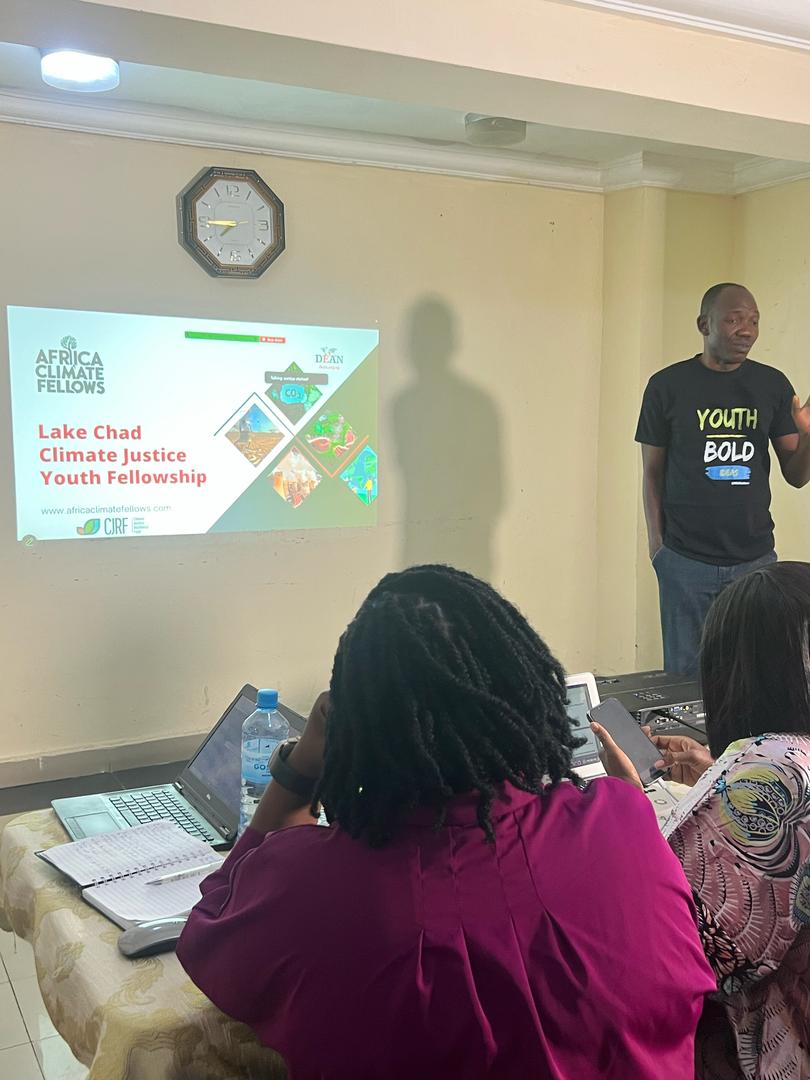By Uchechukwu Arinze
Project Communications Officer
In the heart of Keffi, Nasarawa State, a dedicated group of project advisors, support teams, and stakeholders gathered at Goshen Guesthouse on February 13, 2025, to lay the foundation for the transformative Lake Chad Climate Justice Youth Fellowship. This pivotal meeting aimed to refine the strategic direction of the fellowship, ensuring that young climate activists across the Lake Chad region are equipped to address the intersection of climate justice through impactful community-driven projects.
Empowering Youth to Lead Climate Action
At the core of the fellowship is the belief that communities should tell their own stories, challenging narratives often shaped by outsiders. By amplifying local voices, the fellowship seeks to foster solutions that are culturally relevant and sustainable. Selected fellows from Nigeria, Chad, Cameroon, and Niger will undergo comprehensive training in communication, project management, and advocacy, while also receiving mentorship and seed funding to implement their projects.
Building Capacity Through Tailored Training
The fellowship’s curriculum will feature four key modules designed to provide fellows with the knowledge and skills needed to drive climate action:
- Climate Change and the Lake Chad Region: Exploring the historical context of Lake Chad and the socio-economic impacts of climate change.
- Climate Solutions: Promoting eco-based approaches, integrating AI and data in climate responses, and examining the economic dimensions of climate action.
- Climate Activism: Equipping fellows to advocate for climate justice at local, national, and global levels.
- Climate Leadership: Developing the leadership skills necessary to influence policy and inspire community action.
Fostering Local Expertise and Collaboration
In line with the fellowship’s commitment to decolonisation, facilitators will be selected from the Lake Chad region to ensure culturally grounded perspectives. Collaboration with institutions such as the University of Maiduguri will further enhance the program’s impact. Additionally, mentorship will be tailored to the specific needs of each fellow, fostering meaningful connections that support both personal and professional growth.
Engaging Stakeholders for Lasting Impact
Recognising the importance of cross-sector collaboration, the fellowship will engage key stakeholders, including government ministries, regional organizations, and local youth-led initiatives. By directly involving these stakeholders, fellows will gain valuable insights into policy processes and advocacy, positioning them to effect change within their communities.
Amplifying Voices and Driving Visibility
To ensure widespread awareness of the fellowship, the call for applications will be shared across youth networks, social media platforms, and opportunity hubs. Fellows will also have opportunities to showcase their work through media partnerships, newsletters, and spotlight features, amplifying their impact beyond their immediate communities.
Monitoring Progress and Measuring Success
A robust monitoring and evaluation framework will track the fellowship’s progress, assessing key performance indicators such as the number of fellows trained, projects completed, and communities engaged. This data will not only measure the program’s success but also inform future iterations of the fellowship.
Looking Ahead: A Platform for Global Advocacy
As the fellowship progresses, selected fellows will have the opportunity to present their work at international platforms, including side events at the United Nations Climate Change Conference (COP). This global exposure will enable fellows to share their insights and advocate for climate justice on a broader stage.
Conclusion
The Lake Chad Climate Justice Youth Fellowship stands as a beacon of hope for the region, empowering young leaders to address the complex challenges of climate change. Through capacity building, mentorship, and stakeholder engagement, the fellowship aims to create a ripple effect of positive change, ensuring that the voices of those most affected by climate change are heard and valued.
Stay tuned for the official call for applications and join us in supporting the next generation of climate leaders driving transformative change across the Lake Chad region.

Leave a Reply